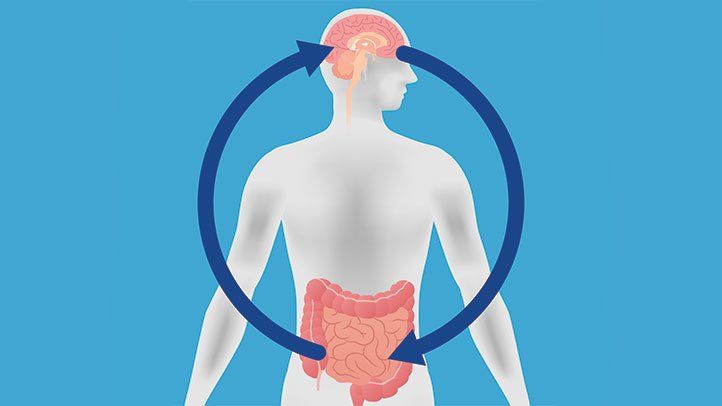Most people experience abdominal discomfort or pain at some point in their lives. Abdominal pain (sometimes called stomachache or bellyache) is usually felt in the part of the trunk below the ribs, above the pelvis and the groin. It can range in intensity from a mild ache to severe, disabling pain.
While abdominal pain isn’t normal, it isn’t necessarily serious, and it often resolves itself.
Causes and Risk Factors of Abdominal Pain
While we don’t usually feel the inner workings of our abdomen, pain can occur when there is a disruption of the normal functioning of an organ or area of tissue inside.
Abdominal pain can be caused by inflammation (as in appendicitis, diverticulitis, or colitis), organ distention or stretching (as in an intestinal obstruction or blockage of a bile duct by gallstones), or loss of blood supply (as in ischemic colitis).
Some prescription and over-the-counter medications, as well as dietary supplements, can cause stomach pain. Medications can do this by irritating the stomach, leading to nausea, pain, and diarrhea, or by slowing digestion, leading to constipation. Be sure to check the label of any drug you take to see if abdominal pain is listed as a possible side effect.
- Irritable bowel syndrome (IBS)
- Constipation
- Peptic ulcer
- Pancreatitis
- Diverticulitis
- Aortic aneurysm rupture
- Stomach or intestinal perforation
- Torsion of an ovary or testicle (when the ovary or testicle twists on the tissues that support them)
- Indigestion
- Stomach virus
- Gastritis
- Menstrual cramps
- Food poisoning
- Food allergies
- Gas
- Fecal impaction
- Lactose intolerance
- Pelvic inflammatory disease
- Hernia
- Gallstones
- Kidney stones
- Intestinal obstruction
- Endometriosis
- Crohn's disease or ulcerative colitis
- Urinary tract infection (UTI)
- Gastroesophageal reflux disease (GERD)
- Appendicitis
- Cancer (pancreatic, stomach, or liver)
- Ectopic pregnancy
- Celiac disease
- Strained or pulled abdominal muscle
- Constipation
- Urinary tract infection (UTI), especially in girls ages 1 to 5
- Strep throat
- Appendicitis
- Milk allergy
- Lead poisoning, often from eating paint chips
- Emotional upset
Duration of Abdominal Pain
Abdominal pain can be brief or long-lasting, depending on its underlying cause. It can be ongoing or recurring, coming and going at what seem like random intervals or with certain activities or behaviors.
How long your abdominal pain lasts, or whether it comes and goes, doesn’t necessarily correspond to how severe the underlying condition is.
Prevention of Abdominal Pain
In many cases, abdominal pain can be prevented by adopting lifestyle and dietary choices that address the cause of your pain. Constipation, digestive upset, and even abdominal injury can often be prevented.
The following steps may help you prevent abdominal pain:
Develop regular bowel habits. Many people can train themselves to have regular bowel movements to help avoid constipation.
Follow a balanced, fiber-filled diet. Eating a variety of fruits, vegetables, and fiber-rich foods, like whole grains, can help support healthy digestion and reduce constipation.
Eat regularly and slowly. Eating moderately-sized meals, instead of waiting until you’re very hungry and stuffing yourself, can help avoid pain from overeating or eating on an empty stomach.
Exercise regularly. Getting enough physical activity can help prevent constipation and strengthen your abdominal muscles, which may help prevent straining.
Research and Statistics: How Many People Have Abdominal Pain?
It’s harder to determine how many people experience chronic abdominal pain, since it can be caused by a variety of health conditions and doesn’t always come with a clear diagnosis.


How Chronic Abdominal Pain Affects Your Brain — and What to Do About It
Resources We Love
The following organizations offer information and support for people with abdominal pain and related disorders:
American College of Gastroenterology
This leading organization of gastroenterologists provides information on many conditions that can cause abdominal pain, including irritable bowel syndrome (IBS), inflammatory bowel disease (IBD), colorectal cancer, as well as general information on abdominal pain.
American Gastroenterological Association
This organization of doctors and scientists who work in the field of gastroenterology has helpful pages on its website about conditions including constipation, diverticulitis, and indigestion, including information in Spanish on some topics.
American Chronic Pain Association
This group aims to support and advocate for people who experience chronic pain, and has information on coping with numerous pain-causing conditions including Crohn’s disease and ulcerative colitis, irritable bowel syndrome (IBS), and autoimmune atrophic gastritis.
Additional reporting by Quinn Phillips.
Editorial Sources and Fact-Checking
- Abdominal Pain. Mayo Clinic. April 25, 2019.
- Abdominal Pain, Age 12 and Older. Kaiser Permanente. February 26, 2020.
- Abdominal Pain. Mount Sinai. December 2020.
- Why Does My Stomach Hurt? Johns Hopkins Medicine. December 2020.
- Abdominal Pain in Children. American Academy of Pediatrics. November 21, 2015.
- Abdominal Pain. Cleveland Clinic. March 20, 2016.
- Alternative Medicine — Pain Relief. MedlinePlus. September 16, 2019.
- Irritable Bowel Syndrome. Mayo Clinic. October 15, 2020.
- IBS FAQs. American College of Gastroenterology. December 2020.
- Roque MV, Bouras EP. Epidemiology and Management of Chronic Constipation in Elderly Patients. Clinical Interventions in Aging. June 2, 2015.
- The Gut-Brain Connection. Harvard Health Publishing. January 21, 2020.



































